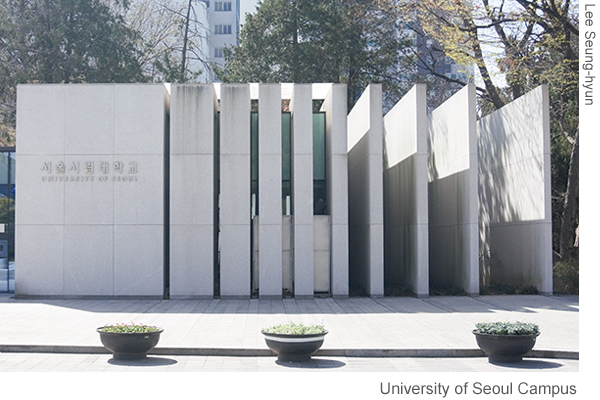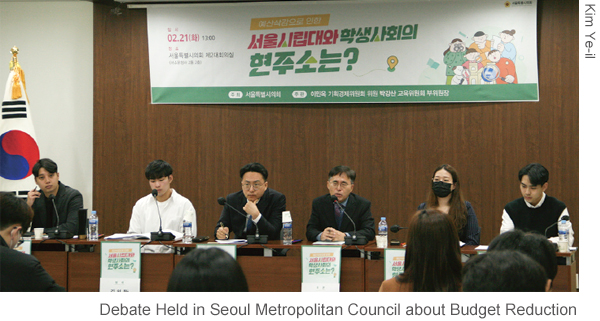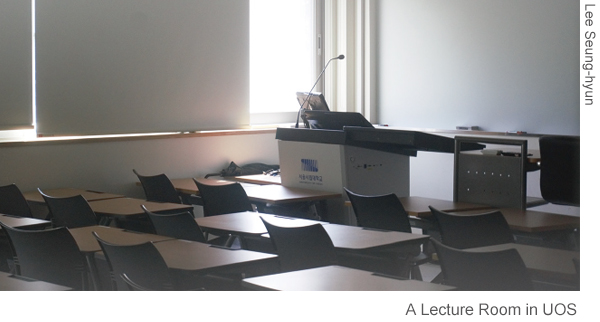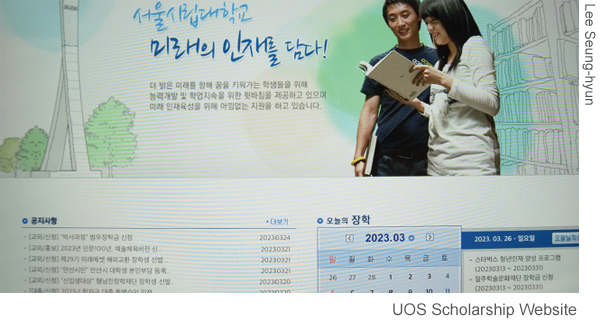
During its 315th regular session on December 16, 2022, the Seoul Metropolitan Council allocated the operation budget of 47 billion Korean won to the University of Seoul (UOS), 10 billion less than the university requested. According to the budget bill that the Seoul Metropolitan Council has requested, about 57 billion won was allocated. However, during the 5th conference held by the Special Committee on Budget and Accounts, this was reduced by 10 billion won without any rationale. Owing to the reduction of the budget, the Tuition Review Advisory Committee discussed raising the tuition fee, which was rejected by the majority of UOS students.

Kim Hyeon-ki, the chairman of the Seoul Metropolitan Council, cut the budget based on the following reasons: a massive fall in QS World University Rankings, a high rate of students taking a semester off, and poor research capabilities. However, these reasons are not well-founded. In the QS World University Rankings, UOS has recorded a significant fall from 500th in 2012 to 800th in 2022. The QS World University Rankings are managed by a British institute, and the rank is determined by six indicators: academic reputation, employer reputation, faculty/student ratio, citations per faculty, international students, and faculty ratio. Among these, the external reputation, that is, academic and employer reputation, accounts for more than 50 percent of the evaluation determining the rank; therefore, the reliability of the rank was questioned. In addition, as a small number of students and faculties in UOS affects the rank, arguing the lack of competitiveness of UOS is inappropriate.
For the next evidence of budget reduction, Kim Hyeon-ki announced that approximately 32.8 percent of UOS students take a semester off, and approximately 300 drop out annually. This claim has been proven to be completely false. Based on the official statistics of the 2022 Public Announcement of University Information, the percentage of students taking a semester off was about 27.93 percent, which is lower than what Chairman Kim claimed. Moreover, according to the statistics of council officials, the average number of dropout students is about 180, and the number has never exceeded 300 or even close to it.
Some officials argue that the intention of the budget reduction was the abolition of the half-tuition. Chairman Kim argued that the “half-tuition” is a typical populist policy of Park Won-soon, the former Mayor of Seoul. Thus, it has been suggested that Kim is trying to erase the achievements of the former Mayor and abusing the university for political purposes. Certainly, regarding the half-tuition that was a policy the Grand National Party (GNP) pushed forward since 2006, when Park was elected Mayor, he ensured the tuition policy was realized in 2012.

If the budget is reduced, several problems will occur in UOS. First, investments in the education sector could be decreased. UOS is a public university that is a base institution for the innovation in the fields of basic, convergence academics, and specialized areas of education. As such, the lack of support for academic research can weaken the role of UOS. Additionally, the university library may have trouble operating. If the advanced resources and e-books are not expanded on time, the active support for the research and the learning activities for professors and students could become impossible.
Second, the deterioration of facilities at the university could be a problem. In the current situation, the replacement of audio equipment is necessary. However, this cannot be done with a reduced budget. The overall condition of lecture rooms also needs to be improved since it is a place for students to learn and study. Furthermore, maintaining and purchasing high-tech equipment for academic research are needed for engineering students, which became difficult owing to the reduced budget. Moreover, it became almost impossible to improve the program for the students studying for state exams. These students would benefit from an improvement in their studying environment. However, because of the budget reduction, they have had to undergo certain hardships.
The most serious problem is scholarships. The Division of Student Affairs is operating various kinds of scholarships for academic, work, economic support, ability development, and so on. Students can be affected by reduced scholarship programs, and UOS may lose its edge to other universities as it cannot perform the social obligation as a public university.

During the 316th provisional session of Seoul Metropolitan Council on February 22, 2023, Seoul Mayor Oh Se-hoon announced that the reduced 10 billion won is expected to be secured in the supplementary budget. “The budget reduction of UOS was not the will of Seoul. The Seoul Metropolitan Council, especially Chairman Kim, presided over it,” Mayor Oh stated. As previously mentioned, the intention of budget reduction is suspected to be to erase the achievements of the former Mayor. As an institution to nurture future leaders, the university must not be used politically. Moreover, the remedies or countermeasures for the reduced budget need to be established.
Lee Seung-hyun
nicole3212@uos.ac.kr

